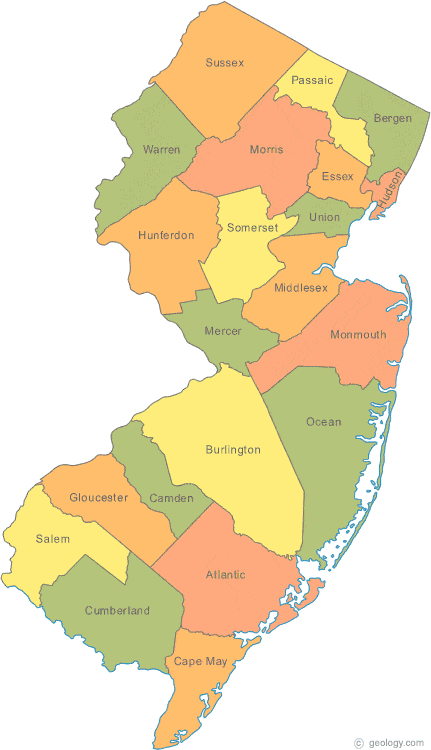http://www.nj.gov/dep/newsrel/2009/09_0025.htm
DEP GIVES GREEN LIGHT TO $73 MILLION IN ENVIRONMENTALINFRASTRUCTURE CONSTRUCTION PROJECTS
(09/P25) TRENTON - From the cities to the suburbs, New Jersey’s local governments are launching a wide array of projects to protect the environment, public health, and property by making significant improvements to water, sewerage, and stormwater-control infrastructure, Department of Environmental Protection Acting Commissioner Mark N. Mauriello said today.
Commissioner Mauriello has signed certifications for more than $73 million in projects, including improvements to extensive segments of Newark’s water-distribution and sewage-collection systems, upgrades to Ocean County’s sewerage system, construction of solar panels for a sewage pumping station in Mount Laurel, construction of stormwater systems to protect neighborhoods in Bayonne and Elizabeth from flooding, and installation of systems to treat naturally occurring radium in wells in several municipalities including Bridgeton.
“Governor Corzine’s economic recovery plan and federal economic stimulus money are making significant investments in the Garden State’s environmental future,” Commissioner Mauriello said. “These projects will safeguard surface and ground water supplies, provide safe and reliable drinking water for many thousands of residents, and protect neighborhoods from flooding - all while putting people to work in good-paying, construction-related jobs.
 ”In the coming weeks, Commissioner Mauriello will certify additional projects that have been authorized to advertise for bids or award contracts, key steps toward final certification and construction.
”In the coming weeks, Commissioner Mauriello will certify additional projects that have been authorized to advertise for bids or award contracts, key steps toward final certification and construction.The projects are funded by $203 million in economic stimulus money the DEP has received through the American Recovery and Reinvestment Act coupled with state low-interest loan packages authorized by Governor Corzine as part of his Economic Recovery and Assistance Plan.
Projects Commissioner Mauriello has certified include:
Nearly $23 million for Newark to clean and re-line some 16 miles of highly corroded, cast-iron water mains to improve the quality of drinking water for the city and for the re-lining of brick sewer mains to prevent leaks that can contaminate ground water.
Rehabilitation work and upgrades to the Ocean County Utilities Authority’s sewerage treatment plant, including upgrades to aeration tanks and sludge-handling facilities, as well as modernization of ocean outfalls built in the 1970s. The DEP is providing more than $10.7 million for the work.
More than $7 million for the city of Elizabeth to build new storm sewers, a new pumping station and new catch basins to alleviate flooding in the neighborhoods around Verona and Gebhardt avenues.
More than $4.4 million for construction of a 529-kilowatt solar array system to generate electricity for the Mount Laurel Township Municipal Utilities Authority’s Ramblewood Parkway pumping station. Excess power will be transmitted to the utility grid.
Construction of a stormwater collection system and pumping station in the area of East 27th Street to reduce the flow of stormwater into Bayonne’s combined sewer system. The project will protect properties by reducing flooding and will reduce soil erosion in Halecky Park. The DEP is providing $2.6 million to the Bayonne Municipal Utilities Authority for the project.
Construction of a treatment system to remove naturally occurring radium from an unused public well in Bridgeton and for pipes to connect the well to the city’s distribution system. The DEP is providing $3.2 million for the project.
These projects are providing jobs in fields such as general construction, excavation, electrical work, surveying and engineering. They will also increase the demand for construction-related good and services. Municipalities in which work has begun will begin reporting the number of people working on the projects by the end of the year.
Governor Corzine authorized the DEP to bundle the federal money with zero-interest loans available through the DEP and market-rate loans provided by the New Jersey Environmental Infrastructure Trust, a state financing authority. This bundling allows municipalities and water and wastewater authorities to borrow state money at very attractive interest rates, at the same time stretching the federal economic stimulus dollars farther.



 Christie's plan to reduce the size of the NJ
Christie's plan to reduce the size of the NJ 

